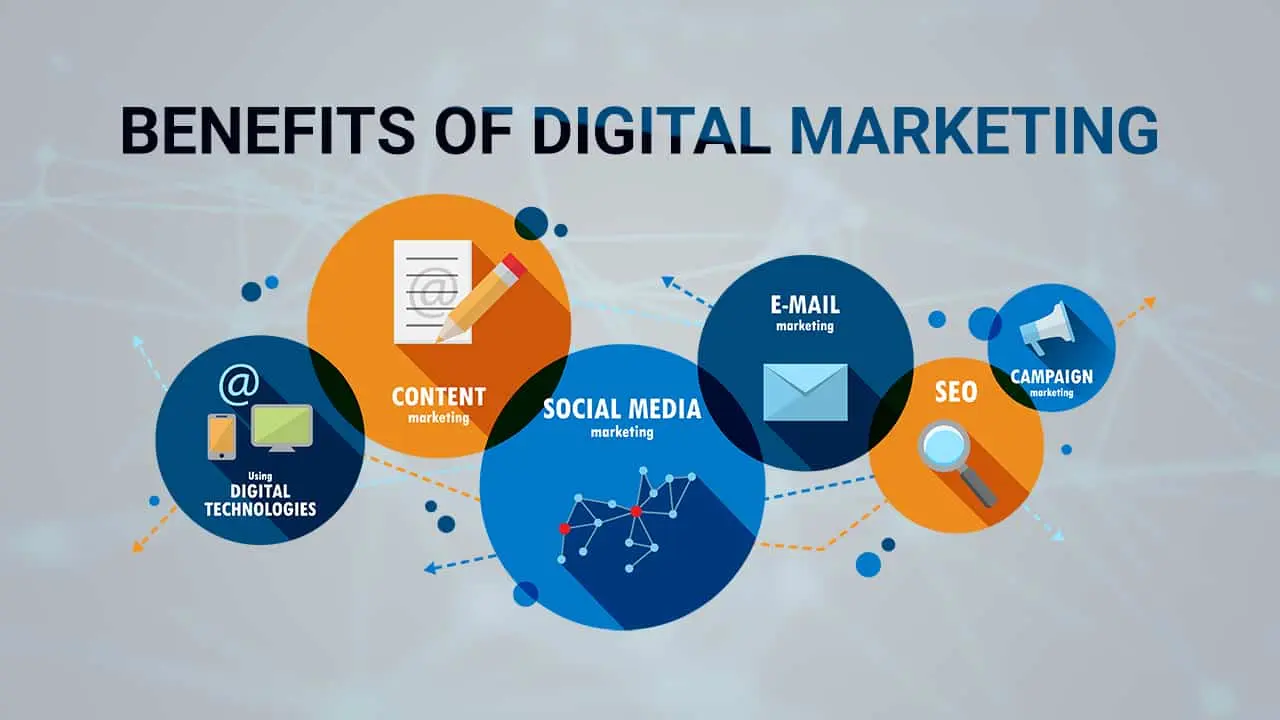The Power of Digital Marketing: A Guide for Modern Marketers
In today’s fast-paced, technology-driven world, digital marketing has become an essential tool for businesses seeking to grow, connect with customers, and stay competitive. Whether you’re a seasoned digital marketer or just beginning your journey, understanding the key strategies and best practices will enable you to achieve your marketing goals and drive success for your brand.
As a digital marketer, your role is to leverage various digital channels to engage with potential customers, increase brand awareness, and drive conversions. From search engine optimization (SEO) and pay-per-click advertising (PPC) to social media marketing and email campaigns, the possibilities are endless when it comes to reaching your audience. But how can you stand out in a crowded digital space? Let’s explore the key strategies and techniques that can help you succeed as a digital marketer.

Master the Art of SEO (Search Engine Optimization)
SEO is the foundation of digital marketing. It’s all about optimizing your website and content to rank higher in search engine results pages (SERPs), making it easier for potential customers to find you. With millions of people turning to Google and other search engines to find products, services, and information, appearing on the first page of search results is crucial.
Key Tips for SEO Success:
Keyword Research: Find the right keywords your audience is searching for. Use tools like Google Keyword Planner or SEMrush to discover high-volume, low-competition keywords.
On-Page SEO: Optimize your content with relevant keywords, meta descriptions, header tags, and internal linking to improve visibility.
Technical SEO: Ensure your website is mobile-friendly, has a fast loading speed, and is free of broken links or errors.
Content Creation: Consistently create high-quality, relevant content that answers your audience’s questions and provides value.
Pay-Per-Click Advertising (PPC): Instant Results with Strategy
PPC advertising allows digital marketers to reach their target audience through paid ads on search engines, social media platforms, and websites. While SEO can take time to show results, PPC offers immediate visibility and can be highly effective for driving traffic and conversions.
Key Tips for PPC Success:
Targeting: Use demographic, geographic, and behavioral targeting to reach the right audience.
Ad Copy: Write compelling ad copy that includes clear calls-to-action (CTAs) and highlights your value proposition.
Budget Management: Set a realistic budget and continually monitor and optimize your campaigns for maximum ROI.
A/B Testing: Test different ad variations to see what resonates best with your audience and improve your ad performance.
Social Media Marketing and Digital Marketing : Building Relationships and Brand Awareness
Social media platforms like Facebook, Instagram, Twitter, and LinkedIn are powerful tools for digital marketers. They allow you to engage with your audience, build brand loyalty, and drive traffic to your website. However, success on social media requires a consistent, strategic approach.
Key Tips for Social Media Success:
Know Your Audience: Understand where your audience spends their time and what type of content resonates with them.
Create Engaging Content: Post a mix of promotional, educational, and entertaining content to keep your audience engaged.
Use Visuals: Incorporate images, videos, and infographics to make your posts stand out and capture attention.
Engage with Your Audience: Respond to comments, messages, and mentions to build relationships and foster brand loyalty.
Email Marketing: Nurturing Leads and Driving Conversions
Email marketing remains one of the most effective ways to nurture relationships with leads and existing customers. By sending personalized, value-driven content, you can keep your audience engaged and encourage repeat business.
Key Tips for Email Marketing Success:
Segment Your List: Divide your email list into segments based on demographics, behavior, or stage in the buyer’s journey to send more targeted, relevant emails.
Personalization: Use the recipient’s name and tailor the content to their interests or past interactions with your brand.
Clear CTAs: Make sure each email has a clear and compelling call to action, guiding recipients to take the next step.
Test and Optimize: Regularly test subject lines, email copy, and design to see what works best and optimize your campaigns accordingly.

Content Marketing: Providing Value and Building Authority
Content marketing is all about creating and sharing valuable content that attracts, engages, and educates your audience. Whether it’s blog posts, videos, infographics, or podcasts, great content helps establish your brand as an authority in your industry and builds trust with your audience.
Key Tips for Content Marketing Success:
Know Your Audience: Understand your audience’s pain points, needs, and questions, and create content that provides solutions.
Consistency is Key: Publish content regularly to stay top of mind and provide continuous value.
Repurpose Content: Turn one piece of content (e.g., a blog post) into multiple formats (e.g., videos, infographics, or social media posts) to reach a wider audience. Digital Marketing
SEO Optimization: Ensure your content is optimized for SEO so it ranks well on search engines and reaches your target audience.
Analytics and Data-Driven Digital Marketing
As a digital marketer, data is your best friend. By using analytics tools like Google Analytics, you can track website performance, user behavior, and the effectiveness of your campaigns. These insights help you make informed decisions and optimize your marketing efforts.
Key Tips for Data-Driven Success:
Monitor Key Metrics: Track metrics like website traffic, bounce rate, conversion rate, and customer acquisition cost to evaluate your campaign performance.Digital Marketing
Adjust Based on Data: If something’s not working, use the data to understand why and make adjustments to improve performance.
Use A/B Testing: Test different versions of your ads, emails, or landing pages to see what performs best.
Conclusion: The Ever-Evolving Role of the Digital Marketer

